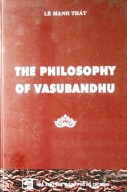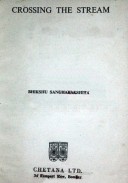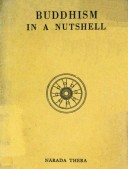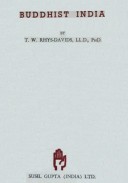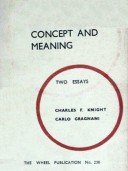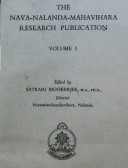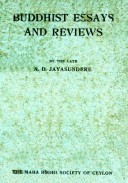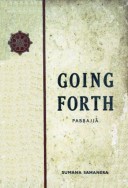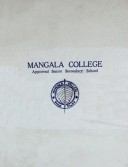Tìm Sách
Sách tiếng Anh-English >> The Philosophy Of Vasubandhu
Thông tin tra cứu
- Tên sách : The Philosophy Of Vasubandhu
- Tác giả : Lê Mạnh Thát
- Dịch giả :
- Ngôn ngữ : Anh
- Số trang : 429
- Nhà xuất bản : TP-Hồ Chí Minh
- Năm xuất bản : 2003
- Phân loại : Sách tiếng Anh-English
- MCB : 1210000003483
- OPAC :
- Tóm tắt :
FOREWORD
The present book is basically a reprint of my doctoral dissertation submitted to the Graduate School of the University of Wisconsin at Madison in 1974 without any major alteration, except a few minor orthographic corrections and style improvements.
Van Hanh, 2003
Lê Mạnh Thát.
TABLE OF CONTENTS
Foreword
Table of Contents
Preface
Chapter One: Problems of Vasubandhu’s Philosophy
Chapter Two: Vasubandhu and His Works
Chapter Three: On What There Is
Chapter Four: Some Logical Results
Chapter Five: A Reexamination of The Perception
Chapter Six: On Self-Knowledge And Further On Its Mechanism
Chapter Seven: On The Language About What There Is
Chapter Eight: Some Concluding Observations
Abbreviations And Bibliography
Index
PREFACE
The pages that follow will be dealing with Vasubandhu and his philosophy, a subject which is laden with so much controversy and confusing questions that even the identity of Vasubandhu himself is put into doubt. Scholars generally agree, however, to consider him to be an idealistic philosopher and his philosophy an idealistic philosophy, according to which “consciousness is the sole reality outside which nothing exists”. In fact, if we were to open any book on the subject of the history of Indian philosophy, we could readily find that Vasubandhu is indeed so characterized, mostly under the heading of Yogãcãra idealism.
My own research about him and his philosophy indicates the contrary, nonetheless. He does not simply consider consciousness as the sole reality outside which nothing exists, but he even denies the existence of the consciousness itself. Starting with his initial question as to whether the object of consciousness is indeed nothing but name, he reaches his final conclusion that consciousness is nothing but a mechanism by which information is processed. Thus, as he himself says it, “consciousness absolutely does not exist in the way it verbally constructs itself and in the way it verbally constructs the object”. In other words, consciousness absolutely does not exist in the way it processes the informations from itself and in the way it processes the informations from the objective world. Why? Because it is but an information-processing mechanism, no more no less. It follows then that in so describing, one can hardly consider Vasubandhu to be an idealist philosopher and his philosophy an idealistic philosophy.
Of course, it does not matter much whether Vasubandhu is an idealist philosopher and his philosophy an idealistic philosophy or not. What, matters is the fact that when such a view is held, his philosophy is not properly described and thus not properly evaluated, especially when it is generally agreed that it plays a pivotal and decisive role in the history of Indian philosophy itself.
The present thesis represents, therefore, an attempt at describing his philosophy as I see it. I will not repeat here the sterile game of labeling it with some specific philosophical brand name. Instead, I will try to describe it as best as I can, as it appears to me. But how can we determine to describe it without any pre-conceived idea?
When I first set out to write the present thesis several years ago; in the first draft of my introduction to it I listed the four following propositions as what I at that time called “the premises of Vasubandhu’s system”:
- The concept of an object does not necessarily refer to the existence and the reality of that object. It may be a mere Russellian description.
- The validity of any concept therefore consists of its “inseparable implication” (avinãbhãva), that is to say, the truth or falsehood of any concept depends not upon its adequacy to the object, but on its consistency with other concepts. Otherwise stated, the ideality of a concept guarantees its formal validity;
- To know is to conceptualize, hence knowledge does not necessarily posit the existence or the non-existence of an object;
- The conceptualization occurs in a process beginning with “the unconscious possession of body and situation” and terminating with the conceptual construction.
These four propositions are now proved, in my opinion, to be generally true, but not totally satisfactory. For instance, although in the present study the theory of descriptions is still held to be one of the cornerstone of Vasubandhu’s philosophy, nowhere is it described in relation to, or in terms of, “the concept of an object”. Similarly, the term “conceptualization” is completely absent in the following pages. Despite these unsatisfactory descriptions, I think that they are still generally valid to some extent in giving us some ideas as to what Vasubandhu’s philosophy is. But what is particularly special about them is that four propositions, my then academic adviser, the late Professor Richard H. Robinson, noted down a query on their margin, asking whether they are “your views or V’s”, meaning whether they are mine or Vasubandhu’s own views.
That remark caused me to think and rethink a great deal about what I then thought and wrote about Vasubandhu. I questioned not only the recurring question as to whether I have attributed my views to him, but further whether in presenting him I have tried to clothe him with modem terms and ideas. These concerns and questions of mine, as can be seen, determine a lot the results that I now submit in this work. I presently believe that they can be readily solved if any statement of mine about him is documented with his words expressed in his own writings. Thus, I answer at the same time the question raised previously as to how one knows that one describes his philosophy without any preconceived idea.
Such a resolution, though generally reasonable if not outright simple, has its own limit, however, in that it prevents us from fully discussing the implications that Vasubandhu’s various theories and notions have, as I formulate them. For instance, in Chapter One I formulate his notion of the absolute in a language very close to what Beth uses to formulate Aristotle’s principle of the absolute. Yet, I desist from talking about Vasubandhu’s theory of science and of mathematics. Similarly, although I observe in Chapter Eight that there is a close causal relationship between his definition of consciousness as a verbal construction and the idea of freedom, I do not explicitly draw from it any ethical implication, despite that it is apparent to everybody upon reflection.
In dealing with a subject like Vasubandhu about whom so much have been written, it is simply fair to point out at this outset that I owe a great deal to a great many scholars, even to those whose opinions I strongly disagree with and severely criticize. For it is thanks to their painstaking labor in the thankless task of editing and elucidating what is still extant and reconstructing what is lost among Vasubandhu’s writings that makes it possible for a study such as mine to be carried out. So to them all I sincerely express my warmest thanks and appreciation. However, there are two scholars to whom it is my pleasant task to express my deepest gratitude individually,1 because they have played such a central role in the present study that it can be said, were it not for them, this study could not have done. First, I wish to express my deep appreciation to Professor Miller who not only accepted me as one of his students, but furthermore helped me in many ways which make it possible for this thesis to be presented. Secondly, I wish to express my profound gratitude to the late Professor Robinson whose guidance and help determine a great deal the form that this present dissertation takes. But it is my misfortune that he did not live long enough to see it through. So, I respectfully dedicate this thesis to him as a small tribute to his memory.
Among my friends whose discussions and suggestions for improvement of the work, I wish to express a special thanks and appreciation to Dr. Stephan Anacker. Last, it is customary to say that if there is any error in this study, it is my own and I am fully responsible for it.
Lê Mạnh Thát
 Facebook
Facebook
 Google
Google
 Google+
Google+
